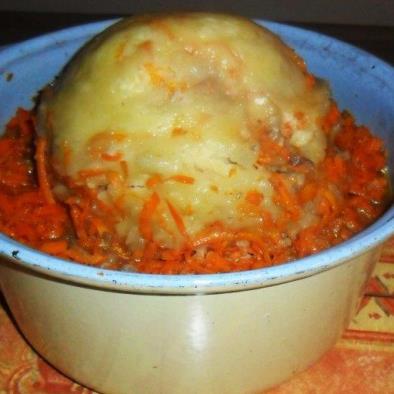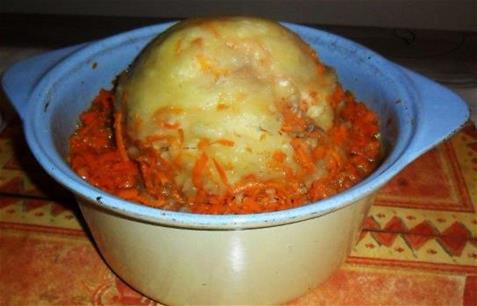
News

Shulamit’s Seder: a short story and recipe
SUZANNE BELLING
A short story by
Suzanne Belling
Shulamit’s specialty was making people feel good. Around her seder table each year, apart from our family, were lonely and stray souls she found in the neighbourhood.
She, like Moses, had succeeded in drawing water from a rock – extracting precious Pesach and other traditional recipes from my mother and aunts. No-one else could pin them down to exact proportions. They didn’t have a Fort Knox attitude to their Cordon-Jew cooking; they simply didn’t know themselves.
Shulamit cornered them in their kitchens. Armed with measuring jugs, she watched whatever they threw in, recorded it meticulously and produced “The Family Cook Book”.
Today, with my contemporaries from South Africa settling in the four corners of the Earth and the older generation of our women making their contributions to the Great Kosher Kitchen in the Sky, The Family Cook Book is my answered prayer book for the chagim.
Even as I write this, I feel a twinge of guilt at my irreverence – Shulamit would have chastised me, gently, for making fun of our dear departed. They were MY blood relatives. Yet they loved Shulamit best.
Nobody could fail to love Shulamit. She radiated the essence of femininity, with modest Jewish womanhood, her beauty both on the outside and within.
When my brother Tuvia was studying, she provided home-cooked meals on his arrival from work, quality time with his daughter Meira; then Shulamit would amuse the child, allowing Tuvia to pore over his books undisturbed.
Meira was the only child in our circle not left with a nanny during the day – the custom in South Africa. As a result, she was more advanced than her peers.
“The sun sets on the horizon,” emerged from the mouth of this two-year-old. And, when darkness fell, Meira named all her “guardian” angels.
Then Tuvia attained the post-graduate degree to secure his promotion. He, Meira, Shulamit – and the shape growing in her tummy – celebrated by vacationing in the Western Cape countryside. Shulamit took along her emphysemic mother.
Before dawn the next morning I was woken by the shrill telephone. Tuvia’s unrecognisable voice uttered two words:”She’s gone…”
It took an instant to realise that he meant Shulamit, not his mother-in-law.
“No, no, no! “I screamed amid his explanation: “Cerebral aneurysm… unborn baby too… Mom can’t take it, her cancer…” and “just come soon”.
A two-hour drive to eternity. I was oblivious to the majestic mountains guarding the lush valleys en route to Ceres in the Western Cape. Meira came running out. “Mommy’s gone to the angels…”
The funeral was enormous. Broken Tuvia sandwiched between my parents. Shulamit’s heartbroken mother clinging to her sons.
Shortly afterwards her mother followed her to the place where all grief ends. Then my mother succumbed to her cancer.
Shulamit was 28. The sun had indeed set on Meira’s horizon, her legacy of learning from Shulamit.
Now, before each Passover, I scan the Family Recipe Book. I have perfected “Ma’s Tzimmes” and know how to plan the seder. It’s under the heading: “Seder for 25”… Shulamit’s Seder.
We shall always reserve a seat for her at our table.
Ma’s tzimmes with dumpling
(My mother’s recipe from her mother and her mother’s mother
- 8-12 bunches finely grated carrots, depending on number of guests
- Brisket – I use tenderised steak, about four slices – or pareve beef stock, if vegetarian
- Apricot jam or honey or syrup.
Dumpling:
- About 4 pkts potato flour
- Schmaltz (about 2 tubs)
- 4 to 6 egg yolks
- Cool boiled water
(When it is not Pesach, adding beans is optional and 1 flat tsp baking powder)
 Method
Method
Dumpling:
Make a shortening with the schmaltz and potato flour until crumbly. Add beaten egg yolks, water for consistency, until all mixed together. (Baking powder when not Pesach).
Add more flour to obtain consistency of dough. Spice with salt, pepper or a little chicken stock.
Knead well and form into a huge rugby ball shape.
Tzimmes:
Line a huge pot with meat at bottom – might do well to grease pot with oil to prevent burning or sticking.
Pack carrots tightly together to form a well.
Place rugby ball dumpling in centre of the well.
Pour cold water on carrots only, avoiding dumpling, until all carrots are covered.
Place lid half way on pot and bring to boil.
Continue boiling for about 2 hours on a lower heat until carrots are soft.
Carefully lift out dumpling and set aside on platter.
Drain excess water from carrots and add honey or syrup to taste. If you are diabetic, use a powdered sweetener.
Mix in meat and place in a large (preferably cast iron) roasting dish with lid or very thick casserole dish.
When satisfied with taste and consistency, replace dumpling on top of mixture. Bake in oven overnight on a very low heat for about 14 to 20 hours.
Before serving, remove lid, so dumpling can be browned slightly.




